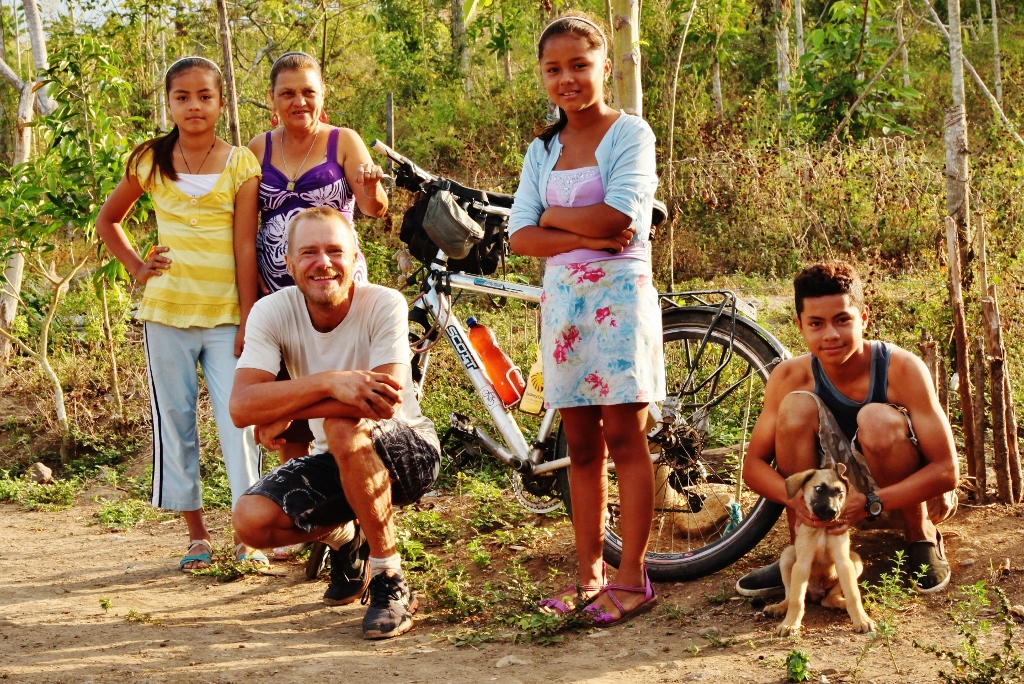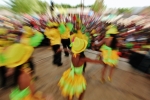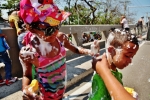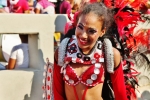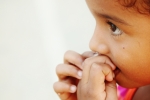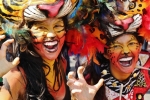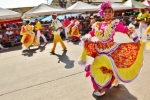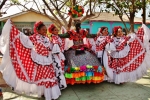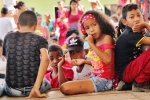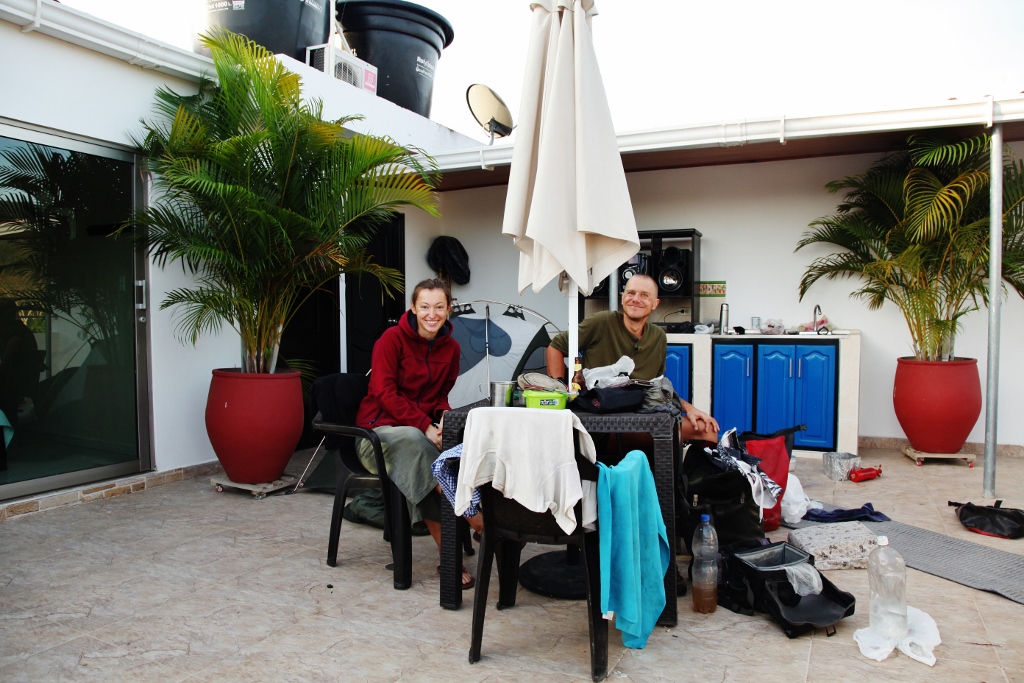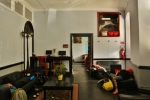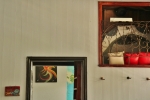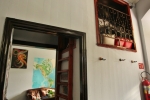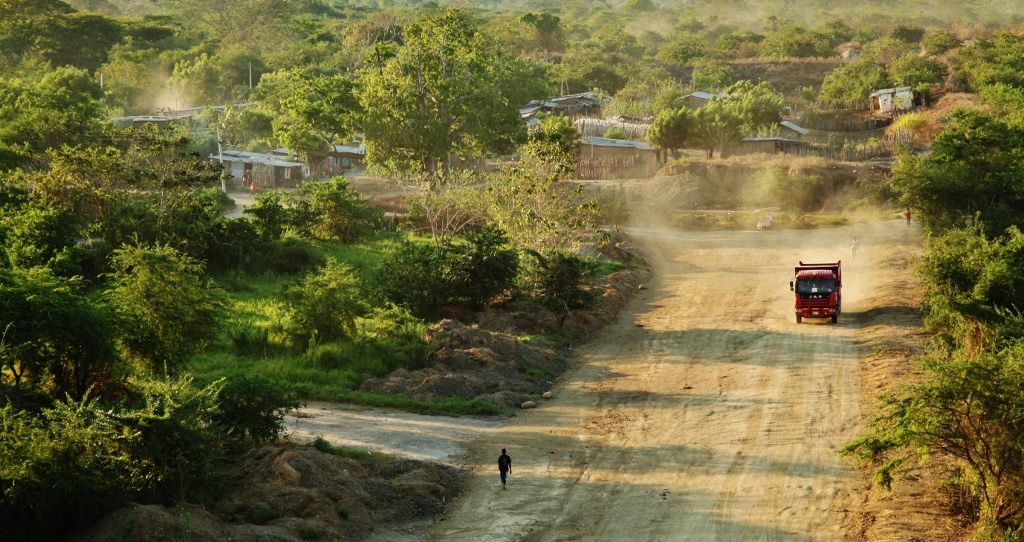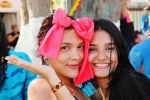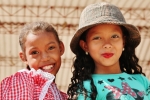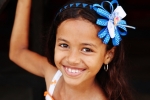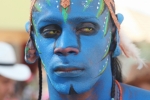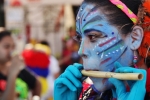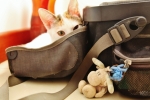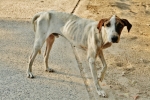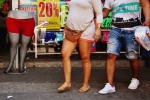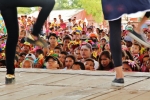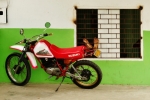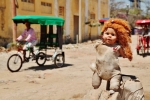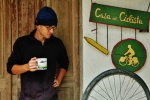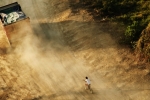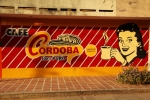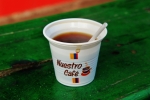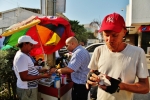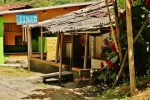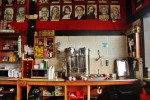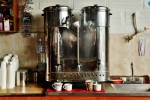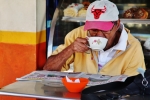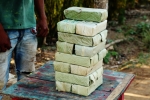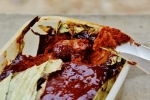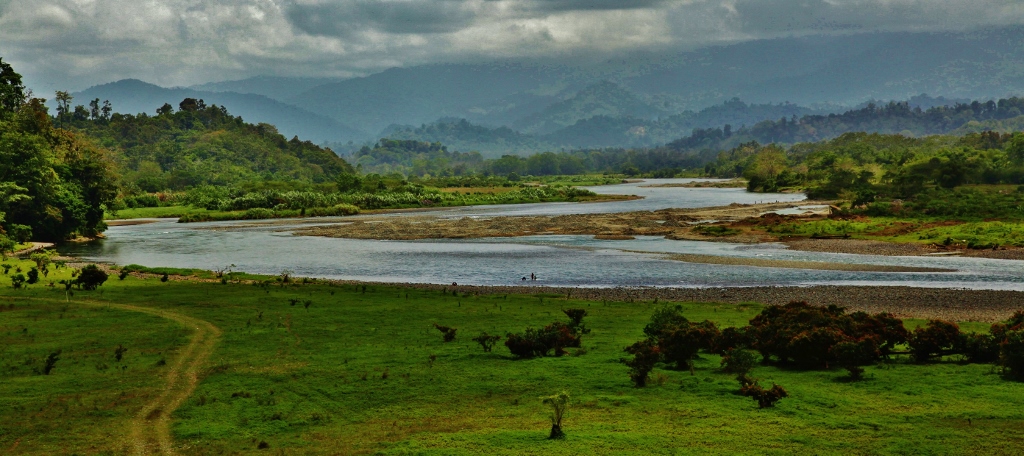 “Now more than ever do I realize that I will never be content with a sedentary life, that I will always be haunted by thoughts of a sun-drenched elsewhere.” Isabelle Eberhardt
“Now more than ever do I realize that I will never be content with a sedentary life, that I will always be haunted by thoughts of a sun-drenched elsewhere.” Isabelle Eberhardt
It was almost noon. I was sitting in a shade, near a supermarket, eating my second breakfast. I made myself a lavish gift, went over my daily budget and bought a tasty, Costa Rican gingerbread, known here as pan bon. It can be bought on the street, especially now, during Lent. Interestingly, its recipe came to Costa Rica with Jamaican immigrants – descendants of working on Caribbean plantations African slaves, who in turn took it from the English. Pan bon (also called pambon) is sweet, full of raisins and it combines perfectly with peanut butter.
So, I was sitting in the saving shade, being watched by a uniformed man, guarding an almost empty, huge parking lot. An hour earlier I fell into disfavour with that security guard because I didn’t give a damn for his rebuke concerning my outfit. The man said that I was obliged to wear a t-shirt while staying in the area adjacent to the supermarket. Before I even noticed him, I had already set up my mattress and lay down to have breakfast.
I bit into the sandwich when I saw him coming. I knew perfectly well what he would say. My naked torso works as a fire alarm on all uniformed guys and it does not matter whether I’m sitting next to a supermarket or getting closer to a checkpoint, or if I’m using an ATM machine at an empty gas station. From right out of the blue a man dressed in a multi-layered uniform appears and waving his gun asks a gringo to be dressed up, because it is not the beach (well, although on the beach a gringo can walk only in his shorts, while natives usually put on shirts and trousers).
Ignoring those sweaty and fevered guys sometimes is effective, especially when I meet them on the road and it is easy to shrug shoulders and just drive off. In that case however, I had no intention to look for another place, so I had to wait patiently and bear the entire Spanish monologue.
At first I pretended that I did not understand anything, but the man had been using such an extensive set of non-verbal gestures that, willy-nilly, I put on my T-shirt. When I was wondering if I would like to eat another sandwich, I noticed a slim, foreign-looking man walking slowly toward one of two cars left in the square. A young boy was making slow progress a few steps behind the man, pushing two overloaded shopping carts. The wheels caught on uneven surface and wedged themselves in tiny crevices of the concrete square.
The man turned around repeatedly and talked loudly, but I could not recognize any words. They were just a few steps from the car when one of the carts rolled over. The hole in the ground was too big and the boy probably even noticed it and he certainly felt that one wheel came into it and jammed, but instead of pulling the cart, he pushed it forward and all its content was on the ground.
Something was broken, something was spilled, one bottle rolled under the car. Among the screams of an overexcited man, the dark-skinned boy was hastily scooping up the scattered stuff, throwing everything into the open trunk of the car. There were so many things on the ground to be picked up. The boy was sweating and his eyes were alight with terror. His huge, wide open eyes, still looking for things which had already been found, lifted and packed. The eyes looking for things which no longer will have to be pushed in overloaded carts, somewhere out of the invisible door, slammed hard by a man from another world.
Those great, dilated pupils of another world. They look at me when I go, when I eat, drink, sit, when I wait, when I put up my tent. They sit on the porches of their tiny houses until finally they come closer. They say nothing but I can hear them talking. I even prefer them to be silent, because when they speak I do not understand anything. They are always behind the wall, as in Panamanian Luna’s Castle hostel, where on the one side live those who were born there, and on the other – well nourished gringos sit and eat gingerbread with peanut butter, watching the silent movie from another life.
And although I once thought that these worlds sometimes meet, now I think they do not. They peer at themselves but they cannot see. They do not meet even if someone invites me to their house, and with generous hospitality offers bed and breakfast. We talk, we smile, we sometimes eat from the same plate, we stroke cats, but the wall remains.
I’m cycling through another country. The birds are constantly flying above my head. I saw them in Colombia, and then in Panama. I’m getting close to Salvador, and they are still above me. Yesterday I saw them again. I do not know what to think about it. I look at them as they circle, as they spin over my head.
The Big Bear appeared in the sky. It hangs upside down and quickly hides over the horizon. The stars are dancing, celestial music can be heard. In the middle of the night I hear you. In the middle of the dream I twirl around.























